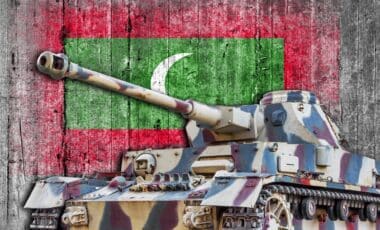Frederick Douglass was a great author, orator, statesman, a licensed preacher, and a leading voice in the abolitionist movement. He spoke internationally against slavery and fought for equal rights among every human and encompassing all peoples – including blacks, Native Americans, women and recent immigrants. He was such a stunning orator that many had trouble believing that the well-spoken, refined Douglass had ever not been a free and educated man. Douglass, of course, had no trouble remembering his time as a slave.
 Frederick Douglass, ca. 1879. George K. Warren. (National Archives Gift Collection)
Frederick Douglass, ca. 1879. George K. Warren. (National Archives Gift Collection)
Frederick Douglass was born Frederick Augustus Washington Bailey in 1818 on a plantation in the state of Maryland. Young Frederick was born into slavery to a master by the name of Aaron Anthony. After Anthony passed, he was given to the Auld family. While working in Baltimore for Hugh Auld, his wife, Sofia, began teaching Frederick the alphabet. Hugh demanded his wife not educate the slaves, and her lessons with Frederick ceased. That did not discourage him from learning, however, as he taught himself to read and went on to teach other slaves, as well.
Eventually, Thomas Auld took Frederick back from his brother, Hugh, and sent him to work for Edward Covey. Covey was known for being physically brutal to his slaves, and whipped Frederick regularly. Frederick rebelled against the beatings and won the match with Covey. Covey, reportedly, never tried beating Frederick again.
Frederick had tried multiple times to escape from slavery, but each time he had failed. His dream of gaining his own freedom was strengthened when he met and fell in love with a free black woman by the name of Anna Murray. Anna helped organize and finance an escape plan for Frederick, and this time they were successful. Frederick had made his way to New York, and Anna soon followed.
Frederick and Anna were quickly married, and took the last name Johnson to divert any attention from the runaway slave. They settled in New Bedford, Massachusetts and adapted the name Douglass, when he was inspired by Sir Walter Scott’s poem The Lady of the Lake. Douglass didn’t waste any second of his freedom, starting his anti-slavery campaign near immediately.
He became a licensed preacher in the 1839, and held various positions within the church. This helped him hone his skills as an orator; a career which he started promptly. He spoke at many anti-slavery conventions, and was a popular speaker in the anti-slavery community. In 1845, he released his first autobiography, Narrative of the Life of Frederick Douglass, an American Slave. The book became a best seller.
The publicity of the book was great for the abolitionist movement, but Douglass’s friends worried that it might draw the attention of his former master to his missing “property.” They encouraged Douglass to get away while the spotlight was on him, and suggested that he tour Ireland. He left for Europe, but his passionate fight for freedom did not. He continued to give speeches about the evil of slavery, and found himself many grand supporters. In fact, he spent two years in Ireland and Britain – during which time his new supporters helped Douglass buy his legal freedom. Douglass returned to the states a legally free man.
Douglass started an abolitionist newspaper known as The North Star, where the motto read “Right is of no Sex – Truth is of no Color – God is the Father of us all, and we are all brethren.” He also released his second autobiography in 1855, My Bondage and My Freedom. By the time of the Civil War, Douglass was the most popular black man in the United States, and used his influence to continually help improve the condition of other blacks in the country.
 Abraham Lincoln
Abraham Lincoln
Douglass met with President Abraham Lincoln regarding the treatment of black soldiers in the war, and helped devise a plan to get freed slaves out of the South and into the North. He also assisted the Union during the war by serving as a recruiter, recruiting even his own son. Later, he met with President Andrew Johnson on the topic of black suffrage.
After the war, the abolishment of slavery, and the long-awaited victory on black suffrage, Douglass continued orating on the importance of education, hard work, voting, and the necessity of equal rights in a free country. Douglass also held many important political positions. And in 1881 he published his third and final autobiography, Life and Times of Frederick Douglass, and later wrote a revision in 1892.
Douglass’s unfailing commitment to suffrage, equality, faith and freedom helped him become a historical icon. Born a slave and died a hero; his dedication to the abolitionist movement helped America combat slavery and inequality. Frederick Douglass is the slave who freed the slaves.








